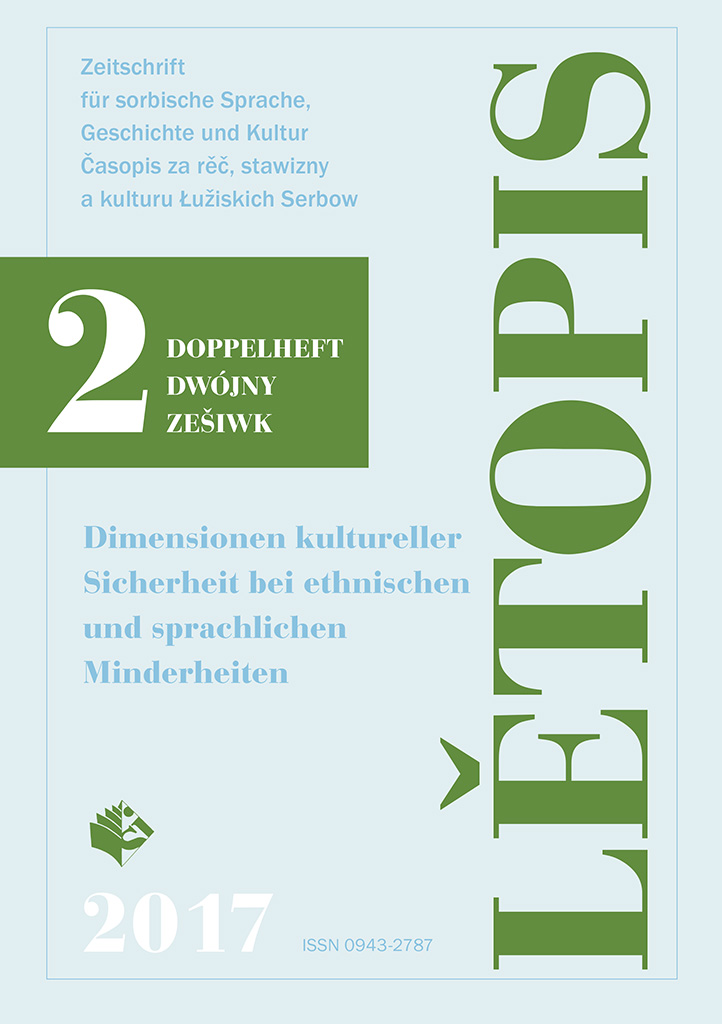Zum Abbau kultureller Unsicherheit bei den Sorben nach 1945
On the Reduction of Cultural Insecurity in the Sorbian Population after 1945.
The Status of the Legal Provisions in Relation to the Sorbs in Saxony in 1948 and Brandenburg in 1950
Author(s): Peter SchurmannSubject(s): History, Conference Report
Published by: Domowina-Verlag GmbH / Ludowe nakładnistwo Domowina
Keywords: Kultur; Unsicherheit; Sorben; Sachsen; Brandenburg; culture; insecurity; Sorbian; Saxony; 1945; 1948; 1950
Summary/Abstract: The social, but above all the institutional framework for the Sorbs made it possible for them from 1948/49 to develop a sense of belonging to the GDR through cultural and political co-determination. Their own cultural identity was strengthened. The members of the Slav minority in Lusatia were made to feel that their language and culture were being taken more seriously than in previous decades. This process was by no means totally smooth, and was also weakened by different measures and discussions, which had a negative effect on intercultural dialogue and exchanges. The ignorance of Sorbian values and goals resulted in a certain, in some cases lasting, damage to their feeling of self worth as Sorbs. This was not only part of the teething troubles of the new Commu- nist social system, but could also be attributed to the after effects and negative legacy left by the NS regime,which represented the highpoint of an agressive policy hostile to the Sorbs. The first provisions for the legally based promotion of the Sorbian language and culture did not however inevitably lead to a feeling of greater cultural security for all Sorbs.
- Issue Year: 2017
- Issue No: 2
- Page Range: 90-99
- Page Count: 10
- Language: German
- Content File-PDF

